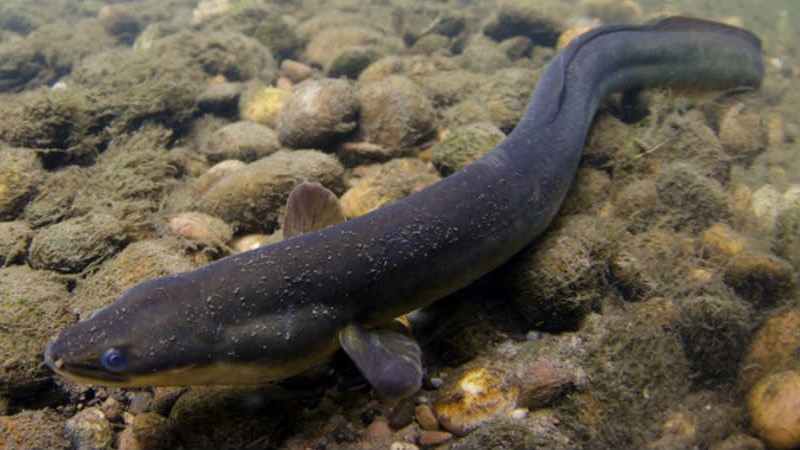Anglian Water, together with their @One Alliance partner and the Environment Agency, have successfully designed and installed an innovative new eel pass at Cloves Bridge, Lincolnshire in a bid to help the endangered species migrate upstream.
As part of Anglian Water’s Water Industry National Environment Programme (WINEP), the responsible water company has invested £113k into replacing the existing mechanical eel pass with a more nature-based design to help save the eel from extinction.
The European eel is now classed as critically endangered after a 95 per cent decline in recruitment over the last 25 years.
Eels spend their early years in rivers across Europe before migrating to the Sargasso Sea in the North Atlantic to spawn. The young elvers are thought to then use the Gulf stream to return to rivers in the region, by which time they have developed into very small glass eels.
One of the reasons why the eel population is thought to have declined so rapidly in recent years, is because manmade barriers in rivers, like weirs, locks and other machinery prevents the species from completing their migration cycle in order to reproduce.
John Bolton, Water Resources Project Manager for Anglian Water said: “We protect important habitats and species at 47 Sites of Scientific Interest (SSSIs) across our region. Projects like this are vitally important so that we can continue to encourage the growth and natural migration of endangered species like the European eels throughout our region and beyond.”
He continued: “The new eel pass at Cloves Bridge uses a more nature-based approach and is an attractive alternative to the traditional use of plastic bristles. It is also significantly less expensive to install and maintain. As well as helping endangered species to thrive, it is a better environmental solution in terms of carbon usage supporting our commitment to become net zero by 2030.”
Eels enter the stainless-steel pass which is tilted upwards and lined with pebbles that have been stuck down using a resin style bond. The pebbles allow the eels to grip as they climb upwards with larger pebbles helping to provide refuge areas for the eels and to break the flow of water. Once over the peak, the downward section is smooth so the eels can slip smoothly and safely back into the water to continue their migratory journey upstream.
Monitoring of the new pass has been completed by the Environment Agency and initial results suggest the project has been a real success story.
Ros Wright, Senior Fisheries Specialist from Environment Agency said: “We have been working with Anglian Water on developing a design for an eel pass at Cloves Bridge based on our latest research to improve sustainability and performance of eel passes. We have been monitoring the new pass over the past month and are delighted that overall, the pass has been shown to work effectively and results from the monitoring are very positive.
“Batches of pigmented elver eels were inserted into the pass and monitored using GoPro cameras fixed in place along the structure. We then monitored the behaviour of the eels at the entrance to the pass with successful and failed attempts recorded.
“The positive results of the monitoring mean this design can now be used as a blueprint model for a sustainable option to further protect and reverse the decline of eels across the UK.”



